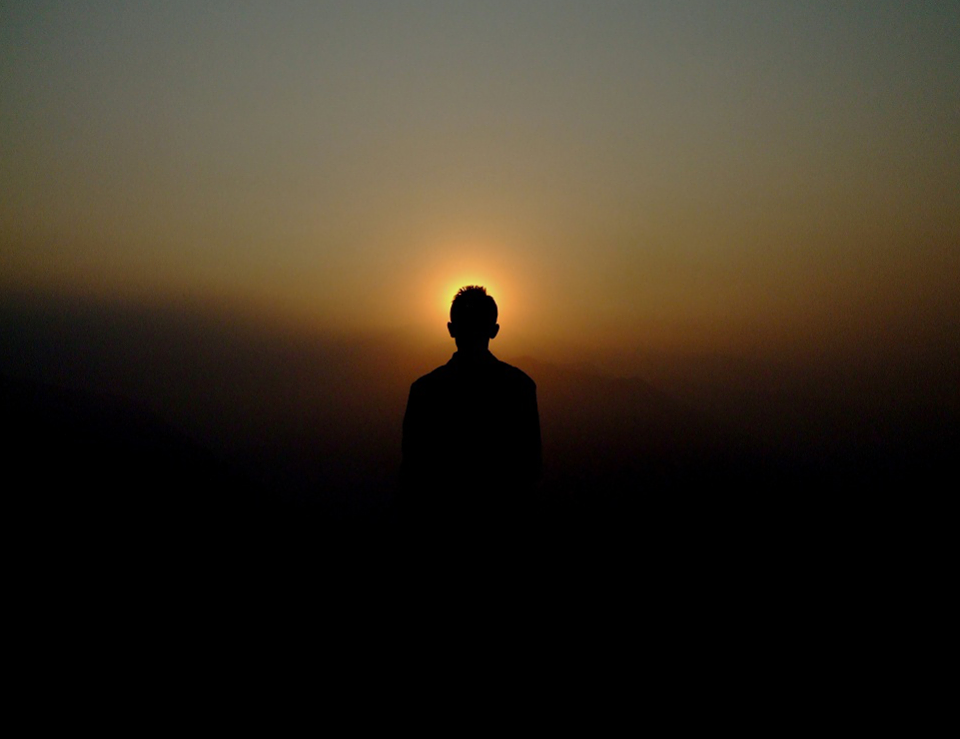Reflections: Theological Memoirs #8
Reflection Number 8: Who am I?

This is the Eighth in a series of articles that examine nine “scientific facts” that require a new theological response.
Read First Article: What we can Know about the Universe
Read Second Article: Homo Sapiens, God, and the Evolving Universe
Read Third Article: From the Very Big to the Very Small
Read Fourth Article: Undeserved Suffering
Read Fifth Article: The World We Create
Read Sixth Article: A Zone by Any Other Name…
Read Seventh Article: How Other Persons Affect Us
Not to be overly dramatic, but we are simply a speck of stardust floating on the infinite sea of the universe, hitching a temporary ride on the train of evolution. The underpinnings of our existence are bizarre antics of elementary particles, and we are surrounded by the unexplained suffering that ensues when the whole system seemingly goes awry. We create our own world, divorcing ourselves from reality, even as we occasionally bump into something that seemingly transcends the everydayness of our existence.(See earlier reflections). Who are we, anyway? Why am I here? What is the meaning of my life?
I think it is a fact that humans search for meaning in life. Not everyone agrees. Perhaps there are those of us who have never asked the question, who have never experienced an identity crisis and wondered who they were, but I suspect that we wonder why we are here on this planet. There are some radical solutions to the question. Life has no meaning, so kill yourself. Your heart is restless, said St. Augustine of Hippo, so find your peace in god. These are two answers representing quite opposite ends of the spectrum, but there are less radical solutions.
Our search for meaning coincides with the underlying and perhaps subconscious feeling that something is missing, and we’re not quite sure what that is. I remember quite clearly a particular class at the U.of Chicago Divinity School. Joseph Haroutunian, my dissertation advisor, spoke with humility about his own life journey. Oh, if only I get into that college, then I will be happy. Oh, if only I get into that graduate program, then I will be happy. If only I get that professorship….that promotion…If only she will marry me, then I will be happy. And then I woke up one morning and said to myself, Joe, there’s something wrong…
What’s wrong is that old nagging feeling that something is missing, and we’re not sure what it is. How often do we feel this way? How long does it last? Or is it constant, perhaps lurking in our subconscious? I don’t know. I have used and continue to use the word void to describe this feeling. It’s a questioning, a search, a feeling, an emptiness awaiting fulfillment. I’m not saying that we spend our day feeling down and depressed, although that certainly happens to some of us. Rather, what we do is to escape that feeling of the void by filling in the blank with some thing or activity that occupies our time and attention and covers the hole. That filler can be anything, can last a long time, and is capable of eventually defining our life.
Shopping. Texting. Television. Work. Play. Gambling. Talking. There is nothing inherently wrong with any of this. On the contrary, they are beneficial and/or necessary, but we must never allow them to take over.
Anecdotal illustration of the search and the escapes is abundant. The Buddha vowed to sit under the bodhi tree until he found the meaning of life, and was successful. I once had a student who tried that, but was not successful. Count Tolstoy contrasted the foolishness and escapism of the Russian aristocracy with the simple acceptance of life that he thought he saw among the peasantry. He himself thought life devoid of meaning, and contemplated suicide. Thoreau believed that most men lived lives of quiet desperation.
Based on our observations in the previous reflections, it seems to me that there are clear guidelines to that search for meaning. Number one, we need to break out of the confines of our distorted perception. We need to grow, open up, become aware, realize our own blindness. Second, become ever more open to moments in the zone. Even if we cannot force them to be, we can work at becoming increasingly susceptible to the magic of the cosmos. Third, reach out to those fellow travelers with whom we share the journey. We do need other people, who care and who share, and the key here is love. Community, whether of two or twenty, seems to me to be the answer to the question of life. Love is who we are. Love is the meaning of life.
